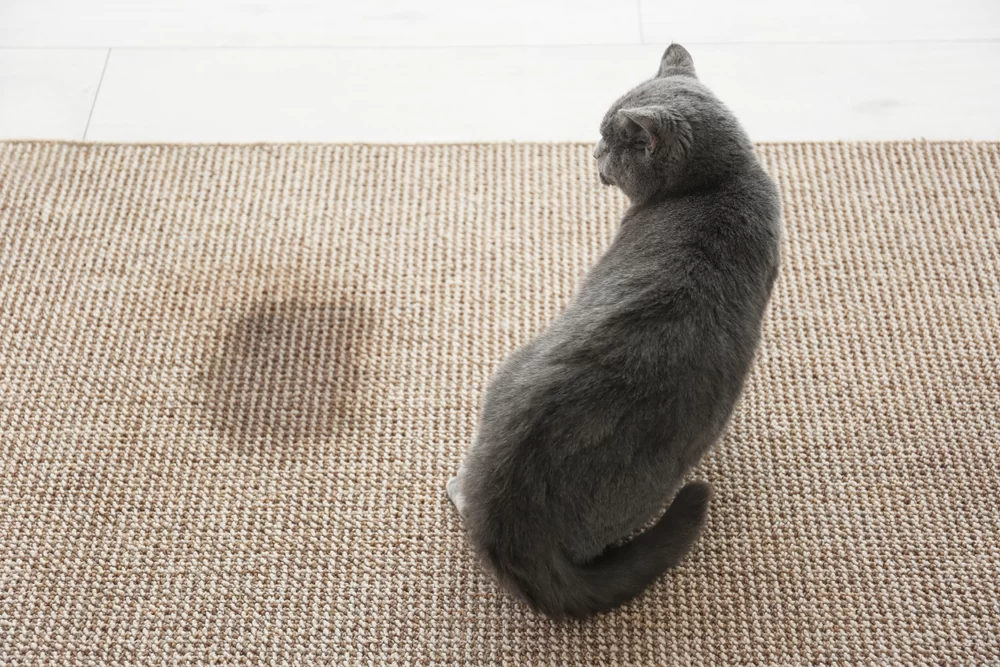Understanding Why Cats Urinate Outside the Litter Box
As a cat owner, few things are more frustrating than finding out that your beloved cat has urinated outside the litter box. It’s something that I personally experienced, and I know firsthand how distressing it can be. My cat, a sweet tabby named Milo, had been using his litter box perfectly for years, but suddenly, he began urinating in various spots around the house. It didn’t take long before I realized that there must be a reason behind this behavior, and it wasn’t as simple as him being “bad.” What I found was that there are several potential causes for this issue, and understanding those causes was the first step to solving it.
Common Reasons Cats Urinate Outside the Litter Box
There are many reasons why a cat might start urinating outside their litter box. The first thing I learned is that this behavior is often a sign that something is wrong. It could be a medical issue, such as a urinary tract infection (UTI), bladder stones, or even diabetes. When Milo first started this behavior, I thought it might be behavioral, but after consulting with my vet, I discovered that health problems were contributing to his accidents.
Another common reason cats urinate outside the litter box is stress or anxiety. Cats are creatures of habit, and they can be sensitive to changes in their environment, such as moving to a new home, the arrival of a new pet, or changes in their daily routine. Milo had recently experienced some changes in our household, and I believe this triggered his urination issues. Cats also tend to mark their territory by urinating, which can happen if there is tension with other animals in the house.
1. Rule Out Medical Issues First
Before jumping to any conclusions, I took Milo to the vet to rule out any potential health issues. A thorough examination revealed that he had a urinary tract infection (UTI), which was causing him pain and discomfort. Once we treated the infection with antibiotics, his behavior started to improve. This experience taught me how important it is to rule out medical conditions first, as they are often the underlying cause of litter box issues.
Common Medical Conditions That Cause Urinary Problems
If your cat suddenly starts urinating outside the litter box, it's essential to consult a vet. Common medical conditions that can cause this behavior include:
- Urinary Tract Infection (UTI): A UTI can cause frequent urination, blood in the urine, and discomfort, leading to accidents outside the litter box.
- Bladder Stones: These can cause pain and difficulty urinating, leading to your cat urinating in inappropriate places.
- Diabetes: Increased thirst and urination are common signs of diabetes in cats.
- Cystitis: Inflammation of the bladder can lead to inappropriate urination due to pain or urgency.
If you suspect that your cat's urination issues are health-related, seeing a vet is the first step toward finding a solution.
2. Make the Litter Box a Comfortable Place
Once I ruled out medical causes, the next step was to focus on the litter box itself. Cats are particular creatures, and sometimes, they refuse to use a litter box that doesn’t meet their standards. I realized that Milo’s litter box wasn’t as comfortable or appealing as it could be. For one, the box was too small for him, and he didn’t like the type of litter I was using. I also didn’t clean it as regularly as I should have, which made it less inviting.
Factors to Consider for a Comfortable Litter Box
Here are some things I did to make the litter box more appealing:
- Size and Type of Box: I upgraded to a larger litter box with higher sides to accommodate Milo’s size. Cats prefer spacious boxes where they can move around comfortably.
- Type of Litter: I experimented with different types of litter, including clumping and non-clumping varieties, and eventually found one that Milo liked. Cats can be picky about the texture and scent of the litter, so trying different options can help.
- Cleanliness: I made sure to scoop the litter box at least once a day and change the litter regularly. A dirty litter box can discourage a cat from using it.
- Location of the Litter Box: I placed the litter box in a quiet, low-traffic area where Milo could use it without feeling stressed or disturbed. Avoid placing the box near food and water dishes, as this can make it less inviting.
By making these changes, Milo’s behavior started to improve, and he began using the litter box again consistently.
3. Reduce Stress and Anxiety
As I mentioned earlier, stress and anxiety can also cause cats to urinate outside the litter box. For Milo, the changes in our household—such as a new puppy and some renovations—were stressing him out. I realized that in order to help him, I needed to create a calmer and more stable environment.
Ways to Reduce Stress for Your Cat
Here are some techniques I used to reduce Milo’s anxiety and help him feel more secure:
- Feliway Diffusers: I used a Feliway diffuser, which emits calming pheromones that help reduce stress and anxiety in cats. It made a noticeable difference in his behavior.
- Provide a Safe Space: I made sure Milo had a quiet, comfortable space where he could retreat when he felt overwhelmed. Cats appreciate having a space of their own to relax.
- Gradual Introduction of New Pets: When I brought the puppy into the home, I made sure to introduce them gradually and under supervision to minimize stress for both pets.
By reducing stress, Milo became more comfortable and less likely to urinate outside the litter box. It’s essential to recognize the impact that changes in the environment can have on your cat’s behavior.
4. Clean Up Accidents Properly
Even with the best efforts, accidents can happen. When Milo did urinate outside the litter box, I made sure to clean it up properly to eliminate any lingering scent that might encourage him to go there again. Cats have a strong sense of smell, and if they can detect their urine in a certain spot, they may return to that spot to urinate again.
How to Clean Cat Urine Effectively
To clean up cat urine, I used an enzymatic cleaner specifically designed for pet accidents. These cleaners break down the urine and eliminate the odor, rather than just masking it. I also made sure to clean any affected areas thoroughly, including carpets, rugs, or furniture. By ensuring that Milo’s accidents didn’t leave behind any scent, I reduced the chances of him urinating in the same spot again.
5. Consider Multiple Litter Boxes
One of the most effective solutions I found for stopping Milo from urinating outside the litter box was adding a second box. Cats sometimes refuse to use the same box for both urination and defecation, or they may avoid a box if it’s too dirty. I placed a second litter box in a different location, and it helped to give Milo more options. This simple change made a big difference in his behavior.
Why Multiple Litter Boxes Help
As a general rule, the number of litter boxes in a home should be equal to the number of cats, plus one. For example, in a two-cat household, you should have three litter boxes. Having multiple litter boxes can reduce territorial behavior and increase the likelihood that your cat will use the box consistently.












